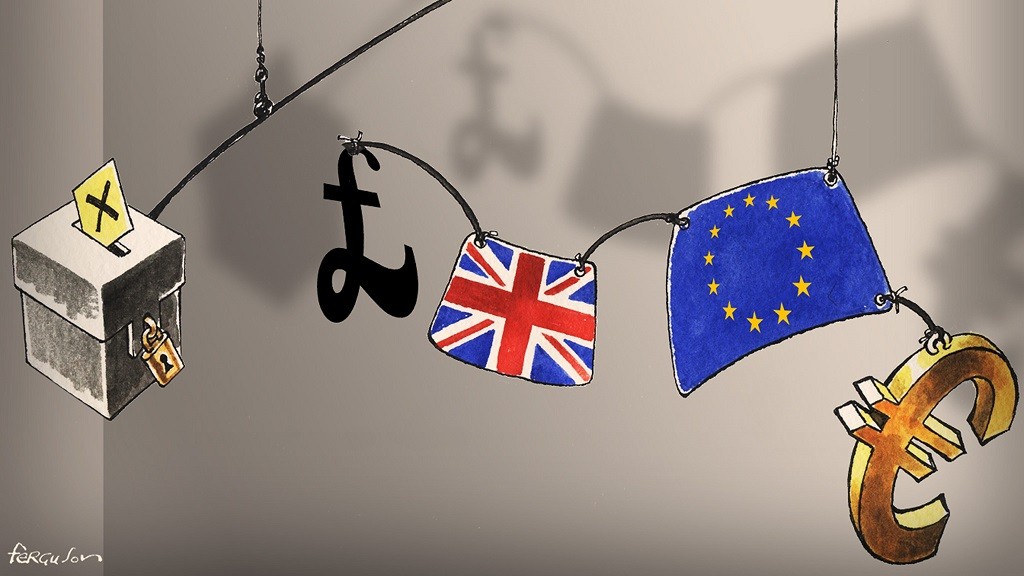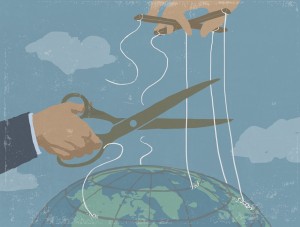The Concept of Sovereignty
and challenges to Sovereignty of Pakistan
Muhammad Rashid
Introduction
 The idea of sovereignty emerged from Aristotle’s philosophy of state politics in which the great philosopher declared the importance of supreme power of the state. This idea was adopted by various empires and philosophers throughout the middle ages to Romans. Then, in the fifteenth century, French jurists used the term ‘sovereignty’ for the first time. Later, this term was used frequently in German, Italian and English political literature. Jean Bodin’s “The Republic” (1576) was the first treatise in political science in which sovereignty as a term was defined. Sovereignty has been defined in the Republic as “the absolute and perpetual power of a Republic, that is to say the active form and personification of the great body of a modern State.”
The idea of sovereignty emerged from Aristotle’s philosophy of state politics in which the great philosopher declared the importance of supreme power of the state. This idea was adopted by various empires and philosophers throughout the middle ages to Romans. Then, in the fifteenth century, French jurists used the term ‘sovereignty’ for the first time. Later, this term was used frequently in German, Italian and English political literature. Jean Bodin’s “The Republic” (1576) was the first treatise in political science in which sovereignty as a term was defined. Sovereignty has been defined in the Republic as “the absolute and perpetual power of a Republic, that is to say the active form and personification of the great body of a modern State.”
Definitions
“Sovereignty is the original, absolute, unlimited power over the individual subjects and over all associations of subjects.” — Burgess
“Sovereignty is that power which is neither temporary nor delegated, nor subject to particular rules which it cannot alter, not answerable to any other power over earth.” — Pollock
“Sovereignty is the supreme will of state.” — Willoughby
Different Aspects
Internal or domestic sovereignty: The final legal authority to some persons or group of persons to enforce obedience and to control or rule.
External or foreign sovereignty: A state is independent of its decisions with other states. It means national freedom of making or breaking the relations of any type.
Characteristics
 Dr Garner identified the following attributes of sovereignty:
Dr Garner identified the following attributes of sovereignty:
Permanence: It means sovereignty relates with stability of state, not persons or government because leaders use sovereign power on behalf of the state. Sovereignty rests with the state only. Sovereignty lasts as long as an independent state lasts.
Exclusiveness: It means there is no sovereign state within an existing sovereign state.
Comprehensiveness: It means nobody can challenge the sovereignty of state. Everyone must submit his obedience before sovereignty, and sovereignty is a universally-acceptable phenomenon.
Inalienability: Sovereignty is non transferable. No person or state has authority to shift or alter or change the uniqueness and unified authority of state sovereignty. Sovereignty is the life and soul of the state and it cannot be alienated without destroying the state itself.
Unity: A unified sovereign state is the spirit of nationalism.
Imprescriptibility: Sovereignty sustains and persists whether state utilize this authority or not. It means if the sovereign does not exercise his sovereignty for a certain period of time, it does not lead to the destruction of that.
Indivisibility: The division of sovereignty means division of state. Gettell has also very aptly remarked in this regard, “If sovereignty is not absolute, no state exists. If sovereignty is divided, more than one states exists.” So, whenever sovereignty is challenged, the sovereign destroys those anti-state elements.
Absoluteness: Sovereignty is subject and answerable to no one. It is absolute and unlimited.
Originality: National interest is dominant in international relations rather than mercy or friendliness or animosity only.
Different kinds
Nominal and real sovereignty: In this type of sovereignty, king or emperor or dictator is the real sovereign, having absolute powers while his senators or parliamentarians are powerless
Legal sovereignty: A determinant, definite and visible type of sovereignty which is formulated by lawmaking authority of the state.
Political sovereignty: When legal sovereignty obeys another power or authority. Such sovereignty is not determinate and clear.
Popular sovereignty: This type of sovereignty is determined by power of masses, not by individual leader or a group or a party.
De facto and de jure sovereignty: Actual sovereignty is the strongest active force in the state and has capacity to implement its authority according to his will.
Challenges to Sovereignty of Pakistan
- Internal challenges
Blame Game on Ideology and Creation of Pakistan
Starting from Khan Abdul Gaffar Khan to Manzoor Pashteen today, some elements have been out to challenge the sovereignty of Pakistan by questioning its very ideology. But, Pakistani media, scholars and educational institutes have been clarifying the aims and objectives of the creation of Pakistan with strong proof and logic. By the dint of that, all such elements are now a part of history.
Religious extremism and separatist movements
Baloch Liberation Army, Mukti Bahini, PTM, TTP and many other anti-state elements emerged within Pakistan and they were funded by foreign anti-state financers and hostile agencies. But a very positive role of media, constructive approach of all the stakeholders of Pakistan, Pakistan Army’s unified actions against such non-state actors, social media and positive civil-military relations, as well as unwavering public confidence in its army enabled Pakistan to counter, crush and destroy such rogue elements. Now the sectarian violence does not exist in Pakistan, extremist and hate material is not available, social media and even educational institutions are promoting spirit of nationhood in Pakistan.
Economic downfall and IMF
Pakistan is on the verge of bankruptcy due to the policies followed by the ‘democratic governments’ during the last ten years. The current government is trying to salvage Pakistan from a total collapse. Sincerity of the current leadership is mirrored by his interest in fostering relationship with nations other than those in the Western bloc.
- External challenges
Geostrategic, geopolitical and geographical importance of Pakistan
Pakistan has become the most important country on the face of the earth due to:
- CPEC and OBOR, by providing a platform for collaboration between the East and the West,
- as a front line state in war on terror,
- neighbouring world’s three largest economic and military powers, i.e. China, India and Russia,
- First and only nuclear-power Muslim country in the world,
- Being a pathway to Central Asian States,
- importance of Gwadar Port on nib of the Persian Gulf (through which more than 35 percent of global oil trade passes),
- Indo–US nexus on controlling Chinese influence in Indian Ocean and Pakistan’s location in the center of global power politics is not only influencing the decisions of Pakistan internally but those related to the external world as well.
Conclusion
Pakistan is fighting the biggest war of his history within and beyond its borders, i.e. On Eastern front (India, a traditional rival), Western front (infiltration of terrorists, global power politics and global war against terrorism), Southern side (Indian Ocean, Persian Gulf, and Gwadar port’s geostrategic significance), North-western Border (Iran, a strong rival of Saudi Arabia, Israel and USA). So, survival of many states depends on Pakistan’s survival and vice versa.
 Jahangir's World Times First Comprehensive Magazine for students/teachers of competitive exams and general readers as well.
Jahangir's World Times First Comprehensive Magazine for students/teachers of competitive exams and general readers as well.




